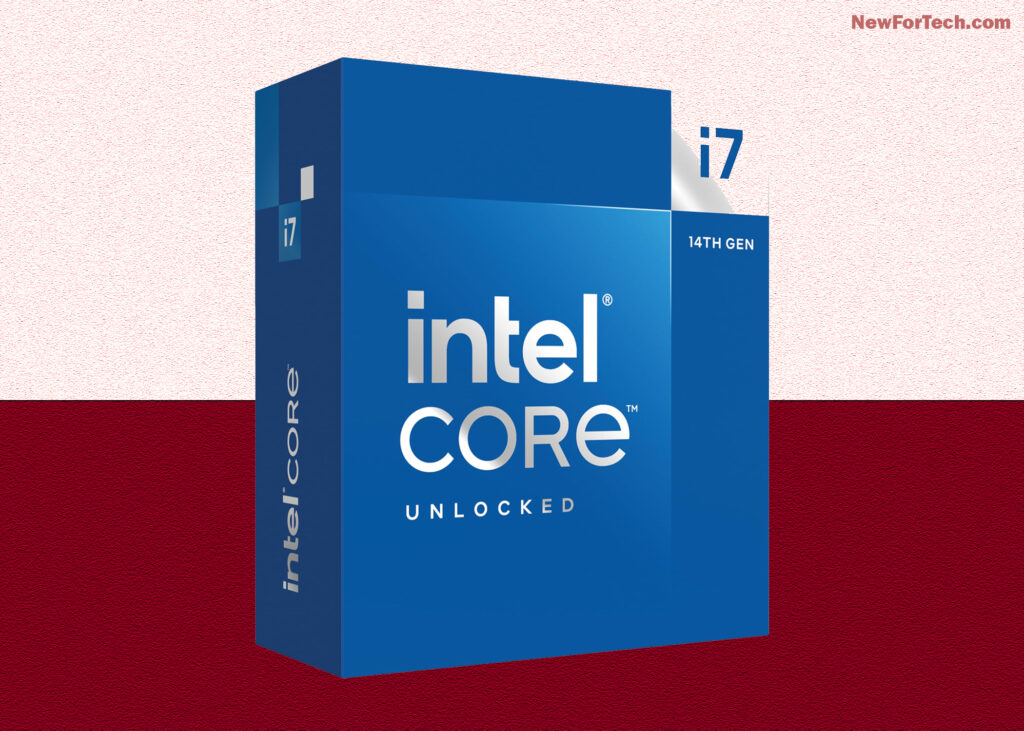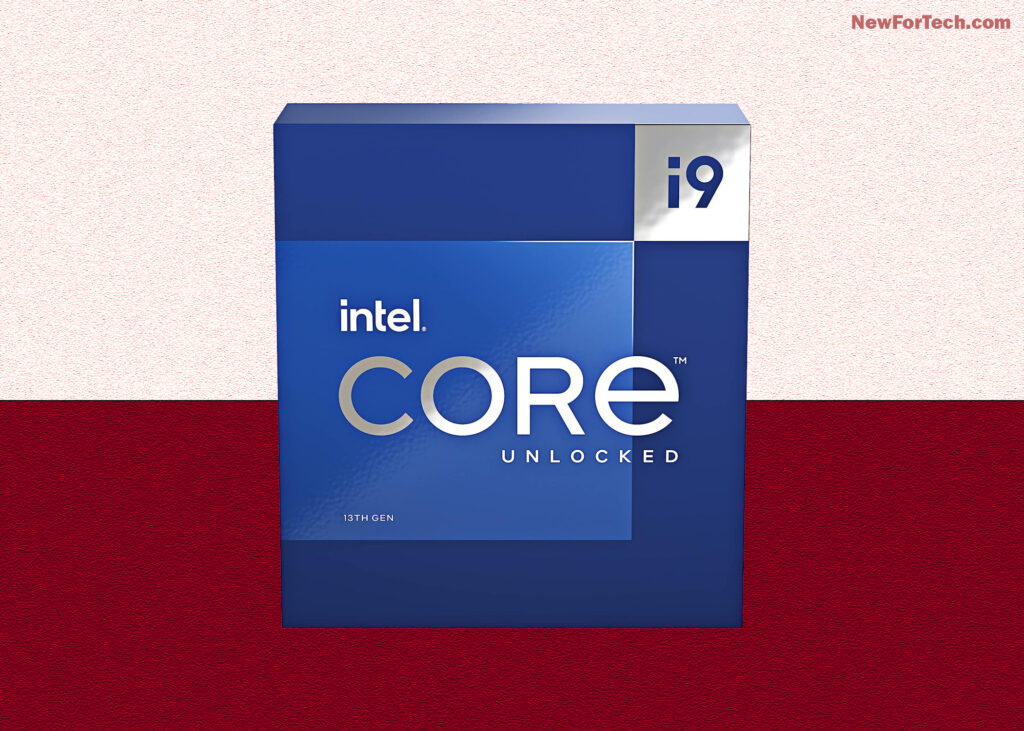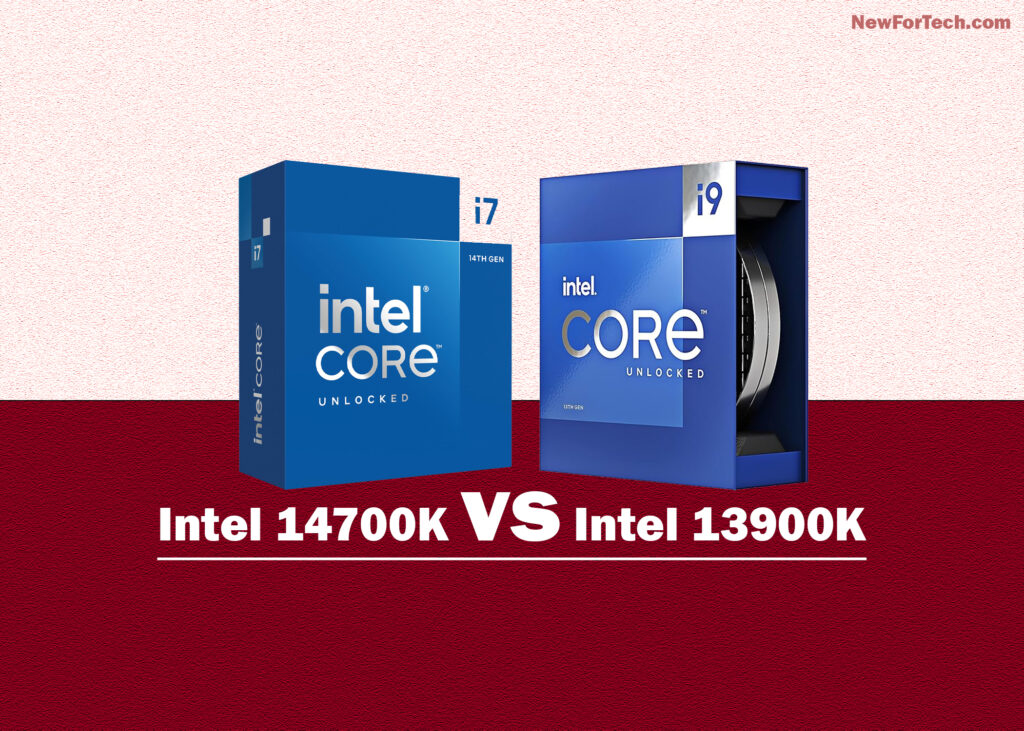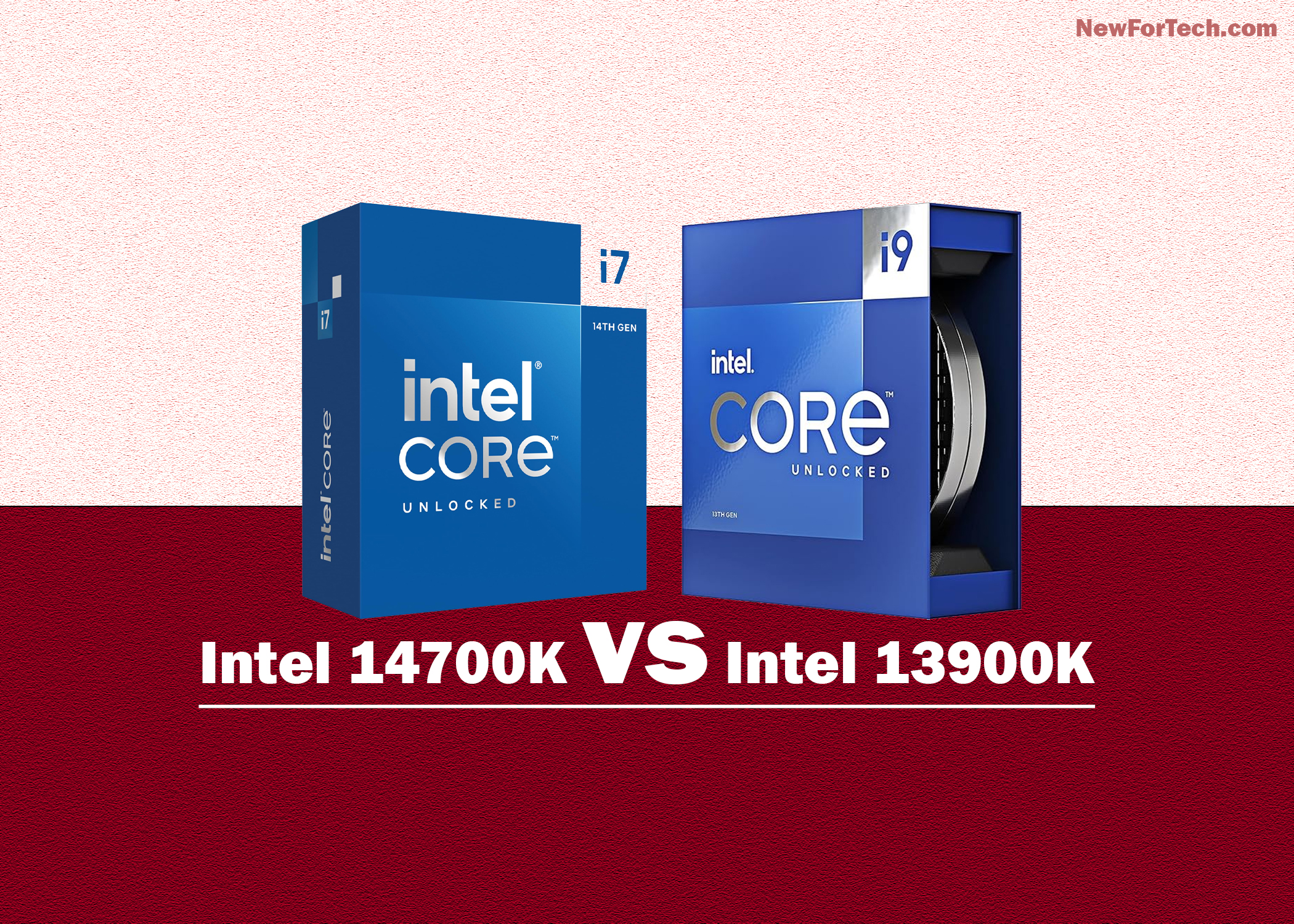Comparing the Intel Core i7-14700K and the i9-13900K is crucial for choosing the right CPU. Here’s an in-depth analysis to guide your decision-making process, 14700K vs 13900K.
Intel Core i7-14700K
Efficiency Cores: 12
Performance Cores: 8
Threads: 28
Base Clock (E-Cores): 2.5 GHz
Base Clock (P-Cores): 3.4 GHz
Boost Clock (E-Cores): 4.3 GHz
Boost Clock (P-Cores): 5.5 GHz
Total Cache: 61MB
TDP: 125W
The i7-14700K impressively matches the i9-13900K’s performance, excelling in gaming and priced even lower than its predecessor.

Pros:
- Core i9-13900K performance
- Outstanding gaming processor
- Slight price cut from the previous gen
Cons:
- Small gen-on-gen improvement
- Runs hot
- Higher power usage
Intel Core i9-13900K
Efficiency Cores: 16
Performance Cores: 8
Threads: 32
Base Clock (E-Cores): 2.2 GHz
Base Clock (P-Cores): 3.0 GHz
Boost Clock (E-Cores): 4.3 GHz
Boost Clock (P-Cores): 5.8 GHz
L3 Cache: 36MB
TDP: 125W
Intel’s previous-gen flagship, the i9-13900K, competes admirably with its successor but faces tough competition from the 14th-gen chips.

Pros:
- Dominates single-core and multi-core workloads
- Same pricing as 12900K
- Outstanding creative performance
Cons:
- Obscene power draw
- Runs extremely hot
- Lacks AMD’s 3D V-cache for gaming
Building a new PC demands careful consideration of the 14700K vs 13900K. While theory suggests performance increases with each generation, pricing remains iterative.
The Intel Core i7-14700K, a top performer in the Raptor Lake Refresh lineup, stands out for its value for money. In our 4-star review, we highlighted the upgrades that elevate it to i9-13900K levels, making it competitive against AMD’s best processors.
On the other hand, the Intel Core i9-13900K, a behemoth in its second year, holds its ground against AMD and Intel’s previous lineups. Our perfect 5-star review emphasizes its all-around excellence.
Choosing between the 14700K and 13900K is the dilemma: stick with the tried-and-tested i9 or explore the next-gen i7 for your rig.

14700K vs 13900K: Price Comparison
| 14700K | 13900K | |
|---|---|---|
| Price | $409 / £311 / AU$593 | $589 / £448 / AU$854 |
| Price Difference | $180 / £130 / AU$261 (44%) | N/A (replaced by 14700K) |
The 14700K is the more economical choice, priced at $409 / £311 / AU$593. This marks a modest 2% reduction compared to its predecessor, the 13700K. In contrast, the former i9 flagship, the 13900K, maintains a consistent price of $589 / £448 / AU$854, creating a notable price gap of $180 / £130 / AU$261 (or around 44%).
Regardless of whether you opt for a mid-range or premium processor, both chipsets share the LGA 1700 socket since 2021. This continuity allows potential discounts on compatible motherboards, provided they support a BIOS update.
While both processors support older DDR4 memory, opting for top-notch DDR5 RAM enhances overall performance. Notably, unlike some leading AMD processors, adopting the latest memory technology is not obligated, allowing potential savings in your build.
Result: Intel Core i7-14700K emerges as the cost-effective winner in the price comparison.
14700K vs 13900K: Specifications and Features Comparison
| Intel Core i7-14700K | Intel Core i9-13900K | |
|---|---|---|
| Performance Cores | 8 | 8 |
| Efficiency Cores | 12 | 16 |
| Threads | 28 | 32 |
| P-Core Base Clock | 3.40GHz | 3.0GHz |
| P-Core Boost Clock | 5.60GHz | 5.80GHz |
| E-Core Base Clock | 2.50GHz | 2.20GHz |
| E-Core Boost Clock | 4.30GHz | 4.30GHz |
| L3 Cache | 33MB | 36MB |
| TDP | 125W | 125W |
| Motherboard Socket | LGA 1700 | LGA 1700 |
The 14700K and 13900K employ Intel’s hybrid architecture, a consistent feature across the last three processor generations. Despite the i7-14700K’s lower cost, it offers fewer efficiency cores compared to the previous i9 model. While both processors share eight performance cores, their approaches differ.
Intel Core i7-14700K vs Intel Core i9-13900K Specs Comparison
While the i7-14700K boasts slightly higher base clock speeds for P-cores and E-cores, the i9-13900K features four additional efficiency cores, a higher total boost clock speed of 5.8 GHz, more L3 Cache, and a superior thread count. On paper, the 13900K emerges as the winner.
Result: Intel Core i9-13900K takes the lead in specs and features.
14700K vs 13900K: Performance Evaluation
While the i9-13900K theoretically outpaces the 14700K, nuances emerge in testing, with the latter occasionally surpassing the previous-gen i9. Despite a close race, the 13th-Gen i9’s extra power gives it a slight edge.
The i7-14700K excels in gaming performance, outshining even its predecessor, the 13700K, and, in some instances, surpassing the 13900K. Although the older i9 wins in specific scenarios, overall, you get the i9 performance at an i7 price.
Thermal and Power Analysis: 14700K vs 13900K
Comparing thermal performance and power draw, the 14th-Gen i7 proves more power-efficient than the 13th-Gen i9. The 14700K runs cooler, both under minimal load and more significantly under intense stress.
Raw numbers for average single and multi-core performance indicate a close competition, with the 14700K leading in overall gaming performance and providing better value for money. However, the 13th-Gen i9 holds its ground in synthetic benchmarks due to the extra four cores.
Result: Intel Core i7-14700K emerges as the winner in overall performance evaluation.
14700K vs 13900K: Final Verdict
In essence, for optimal value and superior gaming performance, the Intel Core i7-14700K takes the lead. Our tests revealed near-identical i9-class performance with commendable synthetic benchmarks and real-world gaming results. Considering its $180 / £137 / AU$261 lower price, the i7-14700K excels in price-to-performance.
However, don’t dismiss the older Intel Core i9-13900K entirely. It outperformed the 14th-Gen i7 in various aspects. Yet, with the Intel Core i9-14900K available at the same price with enhanced performance, choosing the previous-gen chipset makes sense only with a discount. Generally, either processor suits building a top-notch gaming PC with a powerful graphics card, but the 14700K seems to offer more for most users.

